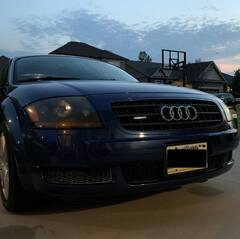You don't want to use a Linux-converted Chromebook
About a year ago, I received a Chromebook from my mom’s friend. Its end of support date was sometime in June of this year (2022 if you’re reading this in 2023, 2024, or maybe this blog will be like religious books and people in the year 4843 will have this read to them by their robotic dog who is also their dental hygienist), so she figured I might want to do something with it.
I genuinely don’t think I’d ever wanted a laptop less than that, because I’m sure we all know the hardware in Chromebooks is less capable than almost anything else on this planet, especially robotic dogs who double as dental hygienists. Chromebooks might as well be using seven-segment displays now for all I know.
Then I saw a video in my YouTube recommended page by a channel called UXWBill. The guide went into how to install Linux on an obsolete Chromebook, and his operating system of choice was a Linux distribution called Zorin OS. I’d never heard of it before, but I decided to give it a try since it somewhat resembles the late-2000s Windows user interface I still prefer over anything else today.
That was a big mistake.
Actually, that’s a bit of an understatement. It made the little Chromebook absolutely unusable. The Chromebook R11 is one of those tablet-laptop convertible things, so it shouldn’t surprise you that it contains an accelerometer. Unfortunately, these are set to maximum sensitivity in Zorin OS with no way to change or disable them, so the screen would spin and flip when the accelerometer detects vibrations from you typing on the keyboard.
I decided to try and install Linux Mint, which I actually had a fair bit of experience with. I entered the URL for the Linux Mint website, and as expected, the Chromebook’s response was to flip the screen upside down. I tried setting it on a table to see if it would be better off than it was on my lap. The Chromebook’s response? A sideways screen. I was starting to think I wasn’t getting anywhere.
As a result of the Chromebook’s defensive screen-flipping tactics, I had no choice but to download Linux Mint on my main computer and then burn it to a USB drive, which I could then use to install it. Surprisingly, this ended up working. Now I was actually getting somewhere.
Just kidding! I wasn’t.
Now that I had installed Linux Mint, there was no sound. I tried searching through the Linux Mint forums and looking through all the sound options, but I couldn’t find anything that could fix the problem.
I then found out these Chromebooks use a special sound chip called the CHTMAX98090, which is like most other sound chips but has almost no information about it anywhere online. Apparently Linux comes with drivers for it, but they’re not configured properly. This really says a lot about the kind of people who develop and worship open source software like Linux.
At this point, doing a “little more research” probably meant search queries that were firing up the dustiest, least used systems in Google’s entire server room. So I ended up doing a little more research. Turns out there’s a fix, but the last Linux Mint version to support it is version 19, released in 2018 and reaching end of support in less than a year.
Great! My idea to extend the life of the Chromebook will only be squeezing one more year out of it! This was definitely worth wasting 5 days of my life!
Still, at least it then got worse...
I was reading an article on Wikipedia, when all of a sudden the touchpad completely stopped working. As I mentioned before, this Chromebook is one of those hybrid laptop things, so I was still able to use the touchscreen. That being said, Linux on a touchscreen is so bad it should be ruled a form of psychological torture.
The next day, as I was reading a Wikipedia article, the touchpad completely stopped working. I decided to reboot it, and after that, the touchpad was so sensitive the cursor would move to the other corner if you even brushed against the thing. Things were normal after a second reboot, at least until the next day. I was reading an article on Wikipedia, and... OK, you get the idea.
Since then, I’ve had it happen on YouTube and Instagram but nowhere near as much as Wikipedia, leading me to believe that something in the code for these sites must be causing the touchpad driver to crash. This issue also prevents the Chromebook from going to sleep, but that doesn’t bother me too much. Since the touchpad is the most infuriating problem of them all, it’s naturally also the only one that’s plain unfixable.
Oh, and if you want your Chromebook’s Wi-Fi card to suddenly perform like it was made in 2008, install Linux. Seriously: this thing was struggling to even load largely text-based websites like news sites or forums, and I didn’t even learn this was fixable until I learned on one of those forums that Intel has drivers on their site, that I was an idiot, and dude, I bet you use Windows.... (insert those laughing low-res emojis many old forums still use)
So there you have it. If you want a Chromebook with Apple iBook G3-grade Wi-Fi, absolutely no sound, and a touchpad that may stop working at any moment, ask a doctor if Linux is right for you. Maybe my opinions would’ve been more positive if this thing could be my dental hygienist.


0 Comments
There are no comments to display.